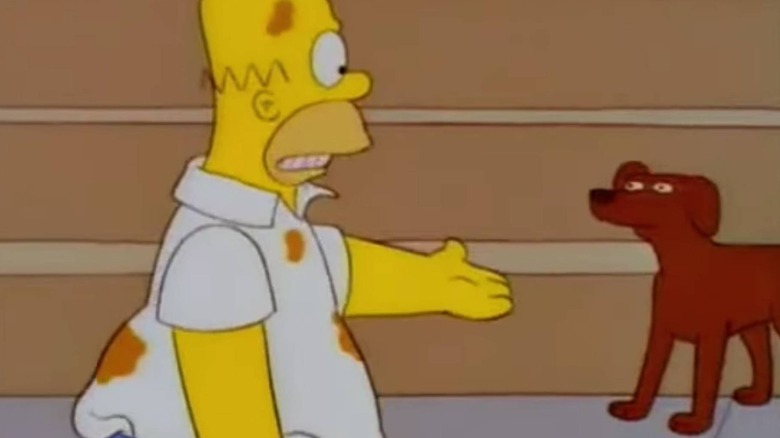The Simpsons Writer John Swartzwelder Revealed The Secret To Writing Homer
Homer Simpson has gone through various iterations over the years. It's to be expected of a character who's been around since the 1980s to better reflect the culture around him. At the beginning of "The Simpsons," he's a well-meaning father figure who's perhaps a bit dim but nonetheless wants to do right by his family. As time went on, he gradually became more oafish, seemingly getting dumber with each passing season. Then came the era of "Jerkass Homer," where he became an insufferable jerk.
Some versions of Homer are more beloved than others, but they all have their place within the pantheon of the animated sitcom. Still, if there's anyone who understood the character best of all, it would undoubtedly be writer John Swartzwelder. He's a legend in the comedy writing business, and he's responsible for writing some of the best "Simpsons" episodes of all time, such as "Homer at the Bat," "Itchy & Scratchy: The Movie," and "Rosebud." In 2021, he revealed the secret to writing Homer that resulted in some of the best Homer-centric episodes of the series.
John Swartzwelder compared Homer to a 'big talking dog'
Homer may be dumb, but he's become one of the most iconic television characters of all time. Surely, he only ascended such ranks by the writers having the utmost respect for him as an individual, right?
It turns out, one of the most revered "Simpsons" writers of all time pretty much sees Homer as a big dog.
In an interview with The New Yorker, Swartzwelder described Homer thusly, "He is a big talking dog." Fortunately, he offered more of an explanation, "One moment he's the saddest man in the world, because he's just lost his job, or dropped his sandwich, or accidentally killed his family. Then, the next moment, he's the happiest man in the world, because he's just found a penny — maybe under one of his dead family members. He's not actually a dog, of course — he's smarter than that — but if you write him as a dog you'll never go wrong."
It certainly makes Homer's time providing the voice of Poochie come full circle. And it makes some of his more eclectic personality traits make more sense. His mood often changes on a dime, and he finds joy in the simple things in life. It's open to debate whether more modern "Simpsons" have stuck to this ethos, but it made for some classic Homer moments all those years ago.

